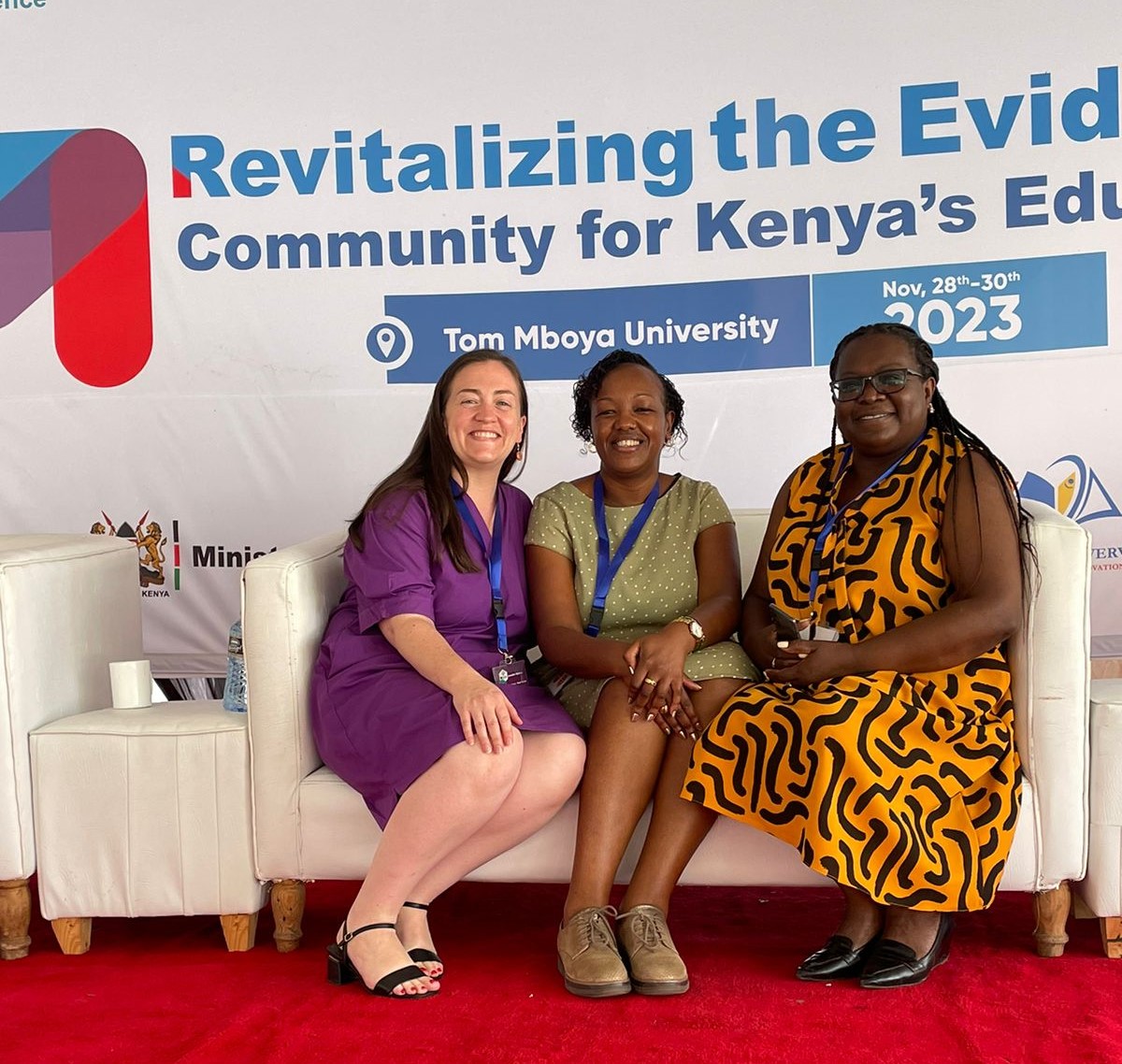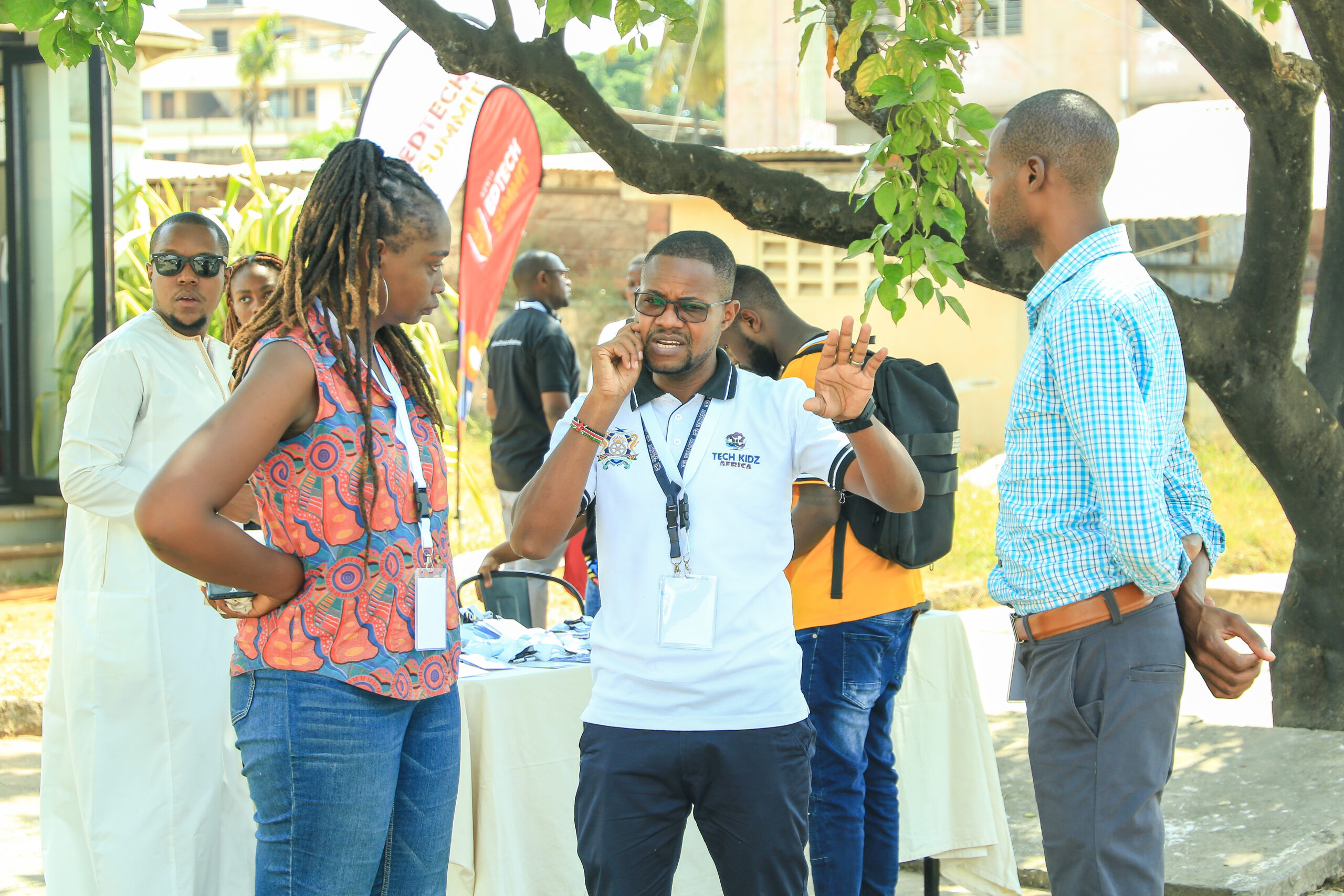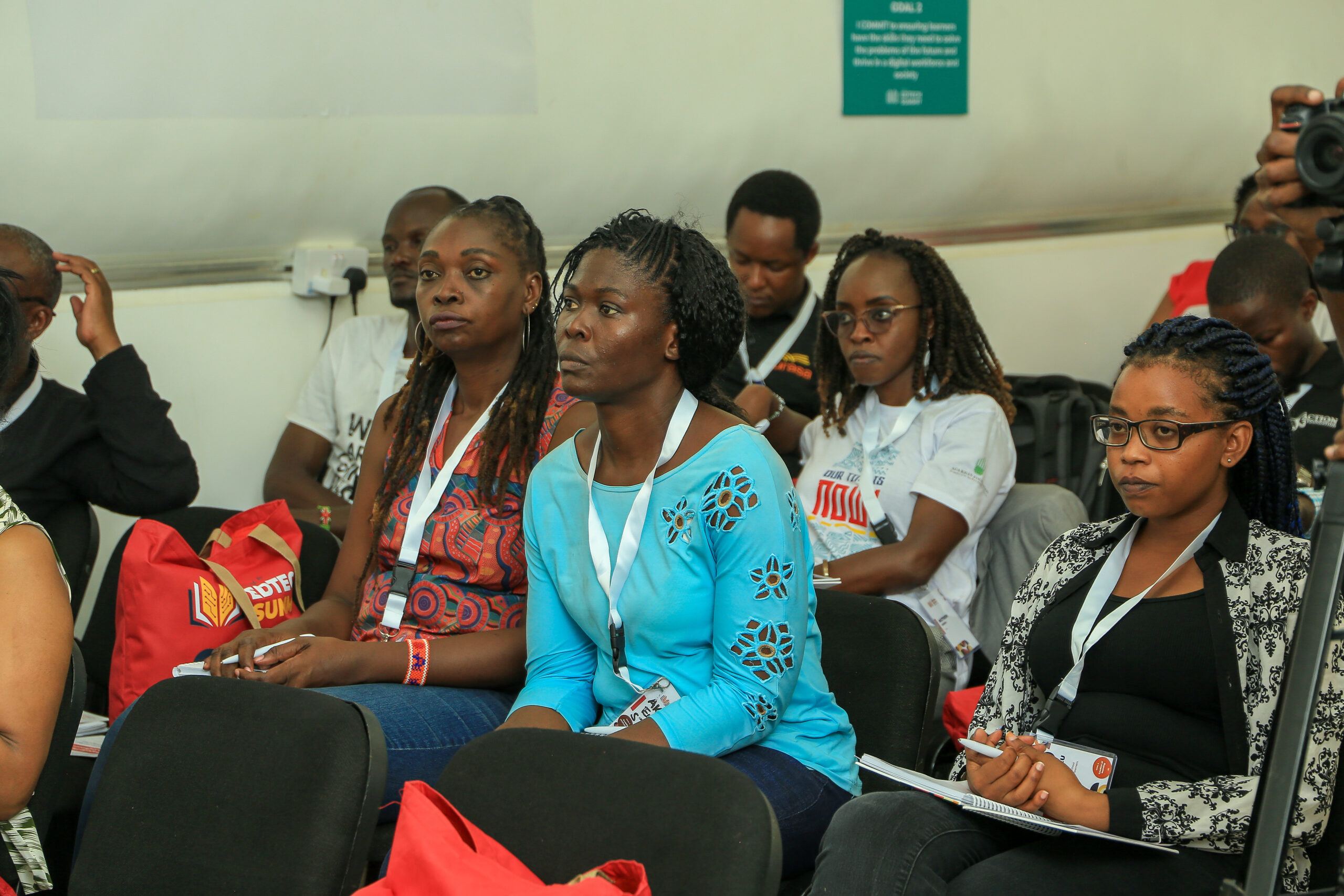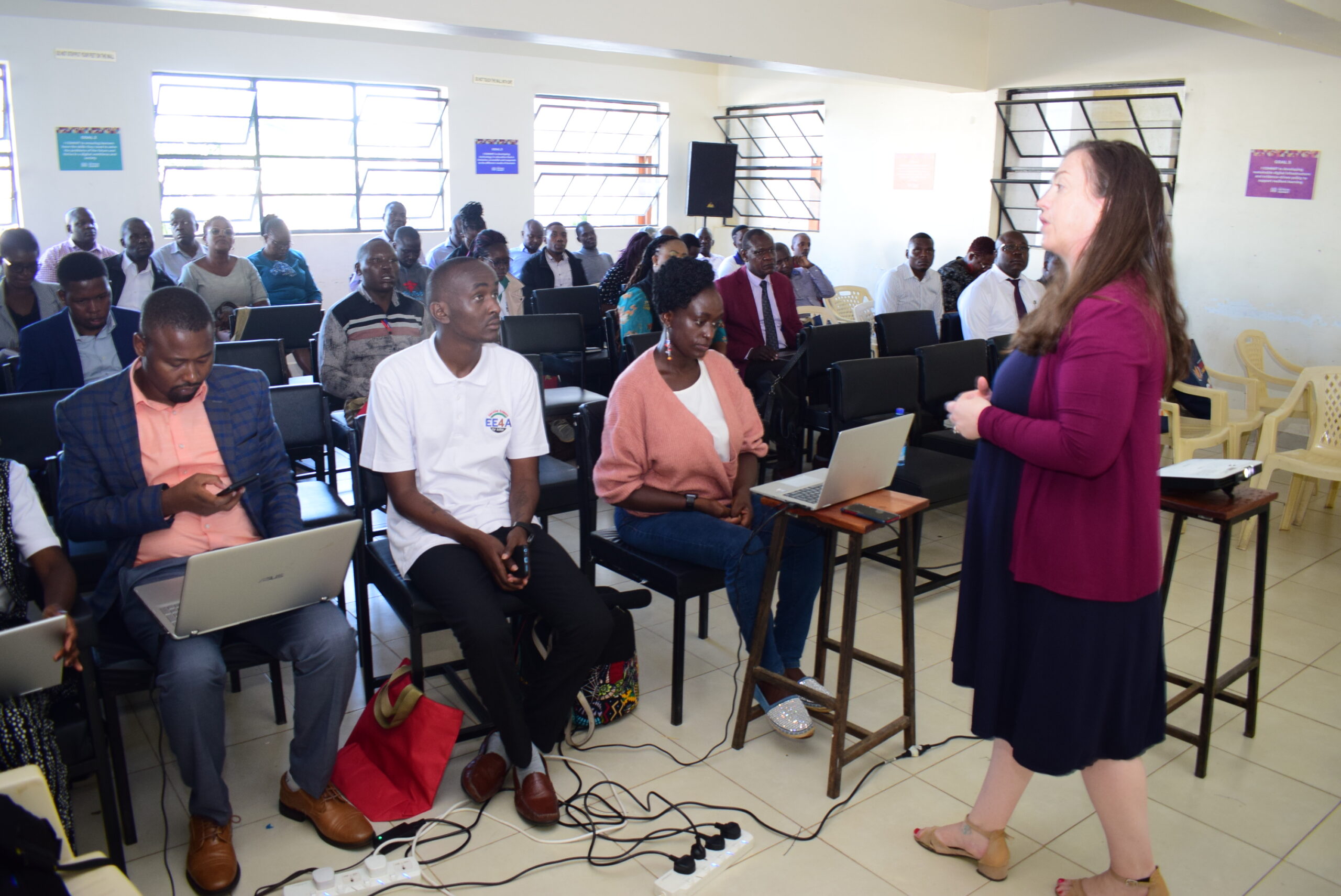By Juliet Awuor
“Despite education receiving over a third of the national budget, many decisions are made without reliance on evidence, leading to inadequate knowledge and information on alternative, cost-effective, and impactful alternatives,” Dr. Kilemi Mwiria observed at the recently concluded 5th Education Evidence for Action (EE4A) 2023 in Homabay County. Dr. Mwiria is the Managing Director of Africa at Education.Org, an independent non-profit that uses evidence to transform education for children and young people. Having a political and research background, Dr. Kilemi was a great fit to deliver the keynote because he could speak from both sides. If you recall, he led a task force in 2014, proposing a raft of measures, including introducing free secondary education.
EE4A is a biennial conference that brings together the research community—researchers, development partners, and policymakers—in education in Kenya to discuss the use of evidence in education decision-making. This year, EE4A was from November 28th to November 30th, with the theme Revitalizing the Evidence Community for Kenya’s Education. It was the first time a learning institution, Tom Mboya University, hosted this conference and ensured strong representation from the academic research community in Kenya, with over 40 deans from universities and technical institutions in attendance.
Dr. Mwiria argued that the collection of enrollment data, participation data, and other data helps allocate resources effectively and provide ideas about progress. However, reports about these numbers may not always reflect the reality on the ground, with many students going through difficulties such as the scarcity of textbooks distributed to schools and the shortage of teachers in some areas.
Also in his keynote speech, Dr. Mwiria discussed the challenges of using evidence in school administration, particularly in school examinations. He noted that while there are county quality assurance teams that use evidence to guide special transitions, there are issues with the objectivity of this data across all schools and the potential for manipulation.
Representing the Ministry of Education (MoE) was Mr. Darius Mogaka, Director of University Education, who read the opening remarks on behalf of Hon. Ezekiel Machogu, the Cabinet Secretary at MoE. He reiterated the importance of using evidence as a catalyst for transformative change in Kenya’s education. He gave the example of the government’s commitment to educational reforms by commissioning the Presidential Working Party on Education Reforms (PWPER), which conducted countrywide consultations with education stakeholders, resulting in a report that prioritized reforms for quality education.
In his speech, Hon. Machogu recognized the symbiotic relationship between evidence and policy in ensuring that decisions resonate with the proven dynamics of effective education. As such, he emphasized the importance of inclusivity, ensuring that every voice from the classroom to the research lab is heard.
Of interest to the EdTech ecosystem was having EdTech as one of the four EE4A conference tracks, positioning it as a key enabler to improving education outcomes. EdTech East Africa held their first Western Kenya EdTech Summit as an EE4A 2023 pre-conference activity on November 28th. This half-day event built upon the national-level conversation conducted at the Kenya EdTech Summit in September 2023. The Western Kenya EdTech Summit allowed local EdTech innovators and enablers to interact with the Kenya EdTech Collective Action Goals workshop and Learning Out Loud workshops featuring two case studies of locally implemented EdTech solutions—Edutab Africa and Angaza Elimu.
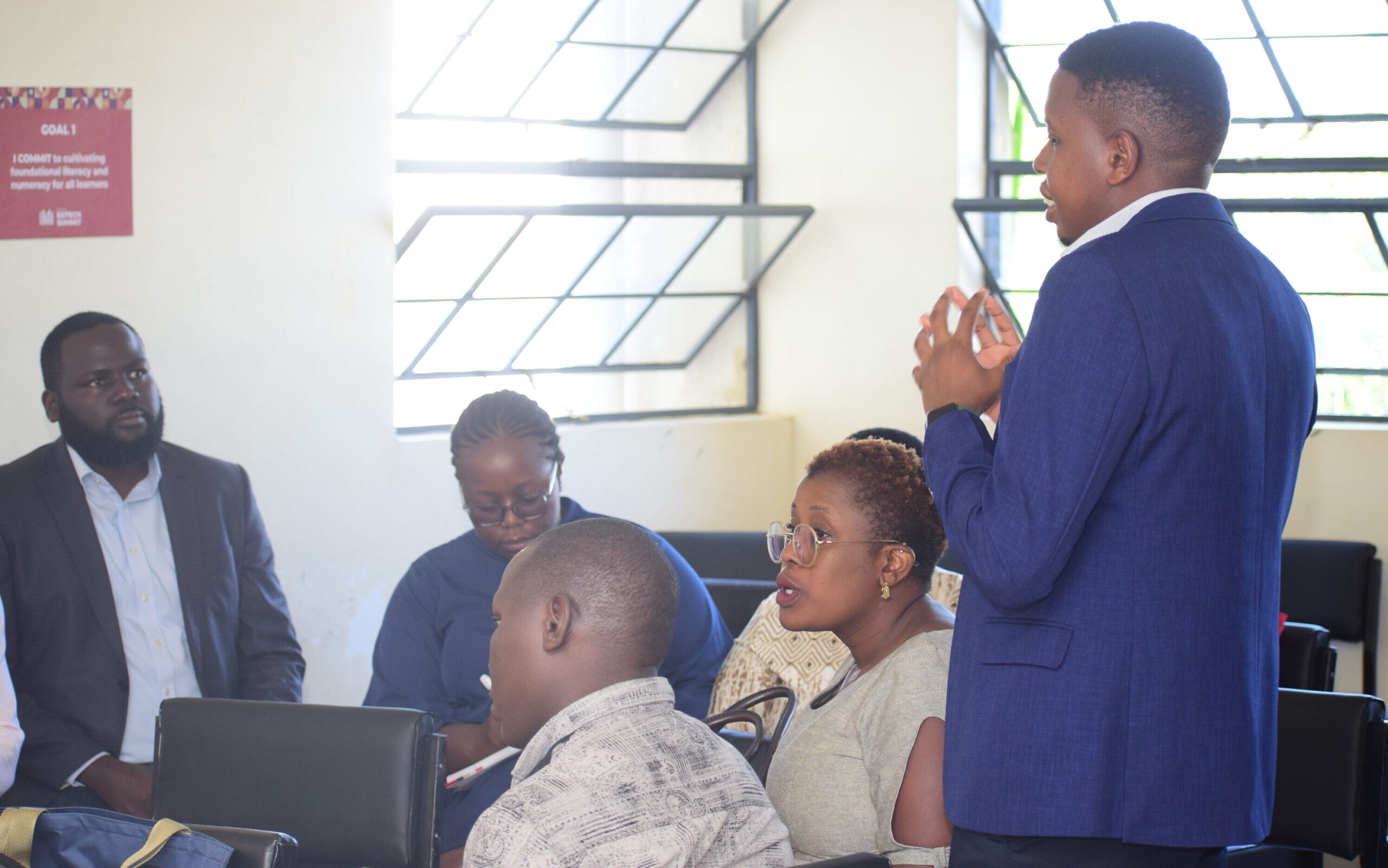
The aim was to bring the conversations around EdTech evidence closer to the local community in Western Kenya. Kiko Muuo, the CEO of Angaza Elimu, said in his session that what data from their EdTech interventions has shown them is a disparity between the way girls and boys access technology. He said that they observed a trend where girls accessed their platform late at night when they should be asleep, while boys accessed their platform during normal after-school hours. On probing, they found out that the trend was due to domestic work by the girls after school.
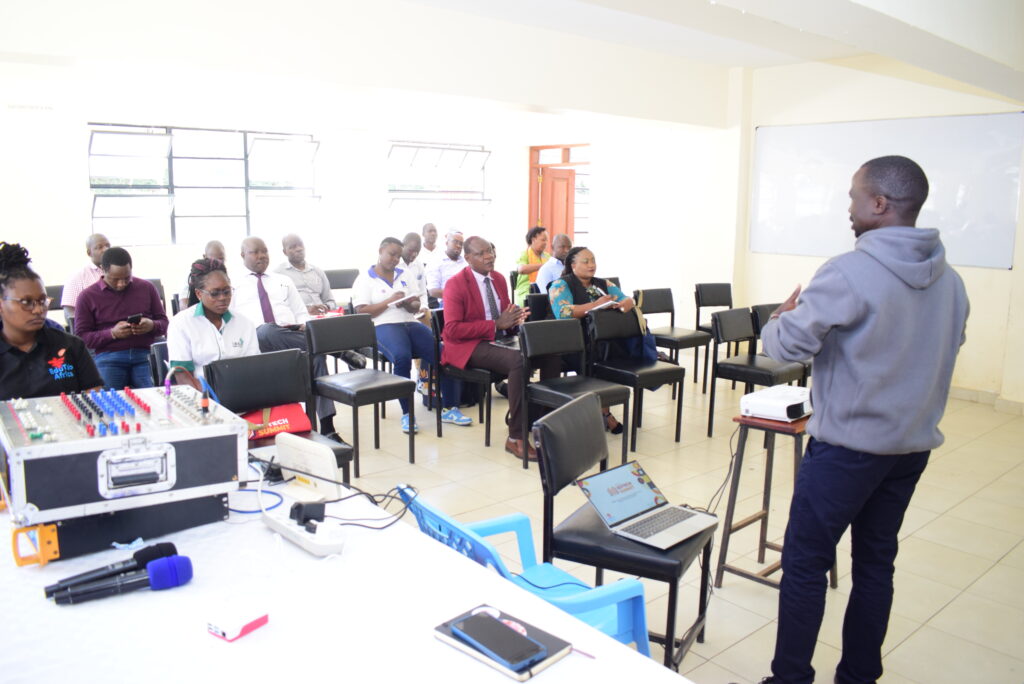
Mike Mumbo and the Edutab Africa team presented a case study of providing digital education through Moodle for offline access to two rural primary schools in a remote region in Trans Nzoia County. The ongoing case study has so far empowered teachers to integrate technology and playful learning. It has also brought to the fore the importance of collaboration with local NGOs, schools, and the Ministry of Education.
In a pre-recorded video played at the pre-conference, Dr. Manos Antonios, Director of the Global Education Monitoring (GEM) Report, highlighted the 2023 Global Education Monitoring Report on Technology in Education. The report highlights three key findings:
1. Although the scope and scale of technology and its change have been vast over the last few years, in higher education and lifelong learning, it has yet to transform primary education.
2. As EdTech products change rapidly, on average every three years, research cannot keep up. In the UK, only 7% of products had gone through rigorous testing, and in the US, only 2% of apps in the government’s clearing house had evidence of a moderate or high impact on learning. In cases of the availability of evidence, it is technology providers who provide that evidence.
3. The best way of describing the impact is that some education technologies improve some types of learning in some contexts. This also means that broader considerations around society-wide issues related to equity and quality should inform our decisions on the use of technology in education, with learners’ and teachers’ interests at the center.
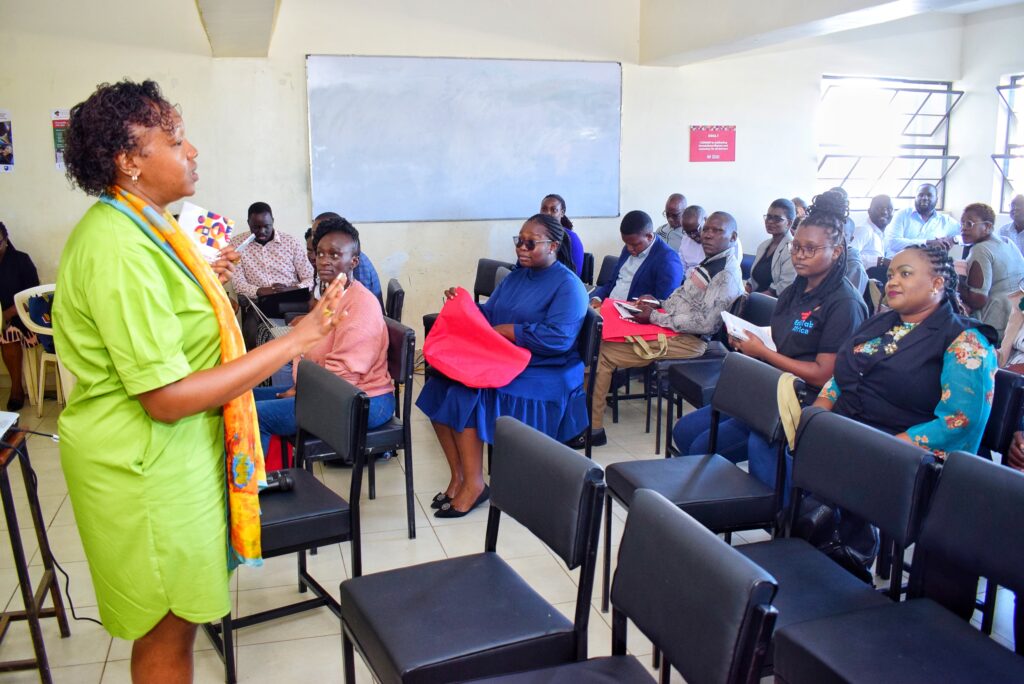
Ciku Mbugua, Kenya Co-Lead at the EdTech Hub, led a discussion on Dr. Manos Antonios’ sentiments regarding what the evidence means for the EdTech ecosystem in Western Kenya. Some of the issues that came out of this conversation were issues of teacher professional development in terms of using technology in the classroom and inadequate infrastructure in rural areas, making access to technology difficult for learners and teachers.
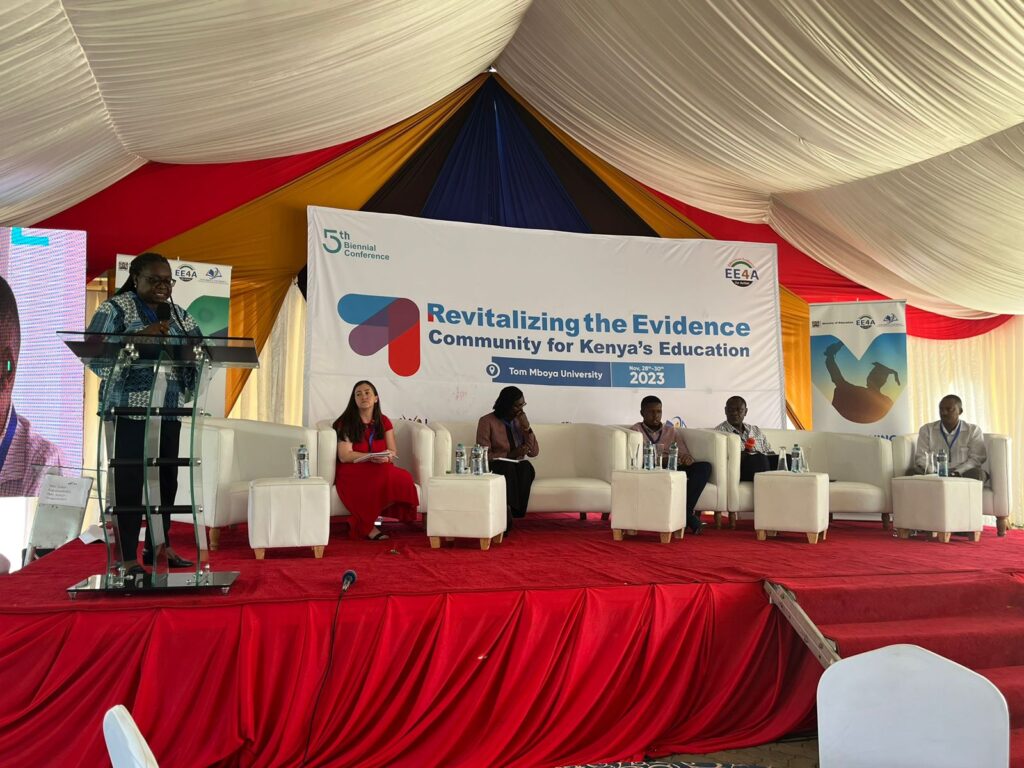
During the main conference, Joan Mwachi, Collective Action Lead at EdTech East Africa, lauded the fact that this time, the EdTech conversation was part of EE4A’s core agenda and not a side conversation. Joan moderated an engaging EdTech panel consisting of Jennifer Cotter Otieno, CEO and co-founder of EdTech East Africa and Kenya Co-Lead at EdTech Hub; Kiko Muuo, representing the EdTech practitioners; Eng. Robert Juma Wamalwa, who was part of the Presidential Working Party on Education Reforms; Dr. Owen Ngumi, from Zetech University; and Prof. Carol Omulando from KCA University, representing academia.
This panel brought out issues of educators’ attitudes toward the use of technology in the classroom, the challenges of e-learning in higher education, issues of access and equity in terms of gender and geographical location of learners, the innovative collaborations between EdTech practitioners and infrastructure providers like telcos, and the strategies that EdTech East Africa is using to bridge the gap between evidence and practice of EdTech interventions. EdTech East Africa is in charge of ecosystem-building initiatives like the Kenyan EdTech Collective Action Goals, which all ecosystem participants co-created under the direction of existing government policies on ICT and education.
Dr. Sarah Ruto, the former CAS for Education who is part of the Global Education Evidence Advisory Panel (GEAAP), also reiterated the GEM report when she gave a snapshot of the 2023 GEAAP report on Cost-Effective Approaches to Improve Global Learning. The report outlines great, good, and bad buys for educational programs. The GEAAP report lists great buys as providing information on benefits, costs, and quality of education; supporting teachers with structured pedagogy; and targeting teaching instruction by learning level, not grade (in and out of school). However, making a single investment in hardware, such as laptops, tablets, or computers, or funding additional inputs without addressing other contextual issues has proven to be a bad buy time and time again.
The interesting insights that came out of the GEAAP report were the interventions with promising but limited evidence. These have studies that prove their high effectiveness, but evidence of their cost-effectiveness or examples of implementation at scale is lacking. One such intervention is using software that allows personalized learning and adapts to the learning level of the child (where hardware is already in schools). The concept of adaptive learning is already in use with EdTech products. This report clearly shows that it is an area of academic research that’s yet to be exploited.
As a first-time attendee, the conference prompted introspection. My motivation was to interact with the evidence community as I prepared to come up with a master’s thesis topic. Listening to the different panel sessions, I couldn’t help asking myself the same questions posed. How do I make sure my research informs policy? What is my motivation for choosing a topic? And how do I maintain the quality of my research? Will it be related to EdTech, having worked in EdTech circles for more than five years?
Dr. Charles Ochola, Vice Chancellor of Tom Mboya University, interrupted my thoughts during the Higher Education panel session. He stated that the research agenda is for career advancements and not to influence policy. Most postgraduates are self-funded by busy working students. This is why, outside every university, you see posters announcing research services and people offering to write master’s theses and Ph.D. dissertations while they don’t even hold degrees. This shines a light on the quality of evidence churned out of our higher learning institutions. Upon successful completion, the bound research gathers dust in libraries and stores, never to be read or influence policies.
To remedy this, Dr. Ochola said that we need to have more organizations fund authentic academic research. He stressed that senior lecturers and professors should have more time to do research, balancing it with their lecture work. There needs to be a succession plan for mentoring young lecturers.
In conclusion, the 5th Education Evidence 4 Action (EE4A) 2023 conference provided a comprehensive overview of the challenges and opportunities within the education sector in Kenya. In essence, EE4A 2023 served as a platform for critical discussions, bridging the gap between research and policy in the education sector. The incorporation of the EdTech track and the insights from esteemed speakers underscored the importance of evidence-based decision-making for transformative change in Kenya’s education landscape. The discussions recognized that technology is an enabler of teaching and learning, and its implementation should focus on evidence that supports the interests of learners and educators. Moving forward, the challenge lies in translating these discussions into actionable policies that positively impact learners and educators nationwide.
————-
About the author: Juliet Awuor is the Communications and Marketing Lead at EdTech East Africa, an ecosystem-building organization that aims to connect EdTech evidence to practice for developing inclusive, effective, and resilient technology-enabled education systems in East Africa.
